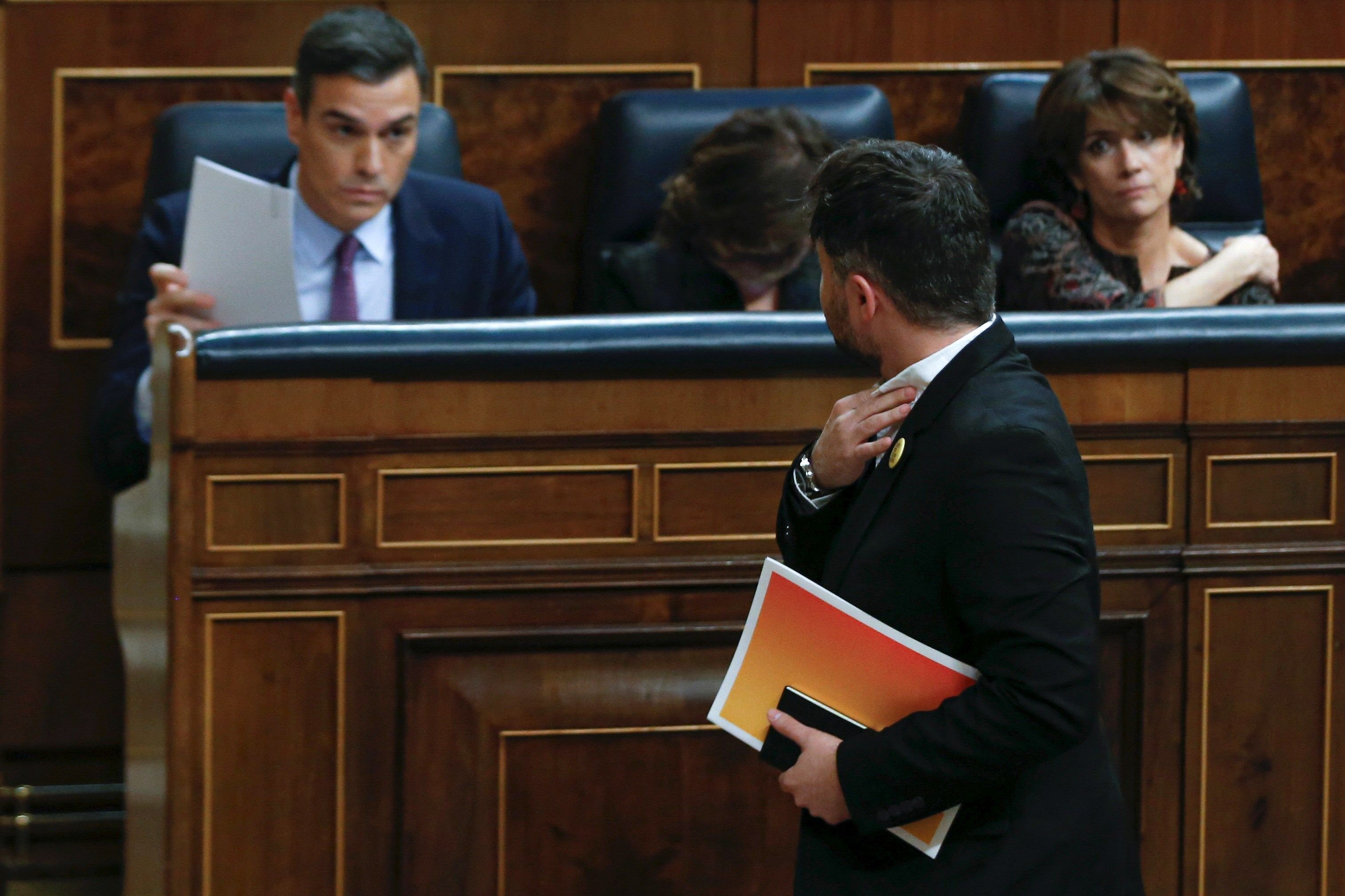Pedro Sánchez, candidate for reinvestiture as Spanish prime minister, has had an opportunity over the last two days to see how hard the legislature awaiting him will be. Not only is he going for a coalition government between PSOE and Unidas Podemos, he's also relying on the abstention of ERC and EH Bildu, and the Spanish right has made it clear that such audacity won't come free. These two days, the candidate has had a taste of the no holds barred clash the next legislature will become should the right maintain this strategy.
After a tense Saturday and as Madrid is getting ready for the Three Kings parade, the Congress in plenary session has seen sparks fly this Sunday. The second day of the debate has merely seen the parties dig into the positions they took on Saturday. But, at the same time, the right, with its radical opposition to the new government, has merely strengthened ERC's role and its demands relating to the negotiating table. At half past twelve, the first round vote made it clear how tight support is for Sánchez (166 votes in favour, 165 against) and to what extent ERC's role is key.
Unrest from the start
The day started with shouts of "murderers", "terrorists" and even "die" as the right responded to EH Bildu delegate Mertxe Aizpurua, especially when she criticised the speech given by king Felipe VI on 3rd October 2017. The debate descended into commotion, with even the intervention of PP's leader, Pablo Casado, trying personally to stop the plenary session and obliging the speaker of the chamber, Meritxell Batet, to note that gone are the times when the state's institutions couldn't be criticised.
But the situation didn't improve for Sánchez with the smallest parties. After Mireia Vehí (CUP), again received by noisy protests, came the turn of Sergio Sayas (Navarra Suma), who attacked EH Bildu's remarks and described the agreement for the government as a "pact against Spain". At the end of his speech, cheered by the whole opposition on its feet, he embraced Pablo Casado. Next, Isidro Martínez Oblanca (Foro Asturias) took the same line. He earned a joyous response from the right's benches closing his speech with a shout of "Viva el rey y viva España". They were chants heard repeatedly during the morning from the right's seats.
PSOE's response came from spokesperson Adriana Lastra. "You have implicitly and even explicitly threatened a coup d'état", she told the opposition, who she described as "excessive and radicalised far right willing to do anything when they lose". The shouts from PP, Vox and Cs barely stopped for a moment whilst she was speaking.
Nor did they stop when she reached the list of those she had to thank. She mentioned Gabriel Rufián (ERC) personally, quoting Borges: "It's not love that unites us, but fear." "We're living in difficult times but our great differences couldn't be the excuse", she said, emphasising her belief that it's time to take a step towards the resolution of the conflict with Catalonia. Suddenly, the hardline opposition from the right to Pedro Sánchez's new government had become one of the most important guarantees for PSOE's commitment to ERC. But also to make it easier for ERC to explain its Congress strategy back in Catalonia.
Last to speak was Pedro Sánchez, who defended "the progressive coalition" in the face of "the coalition of the apocalypse". "There's hope to live in harmony", he said, aware that, should PP not modulate its unmoving opposition, he will find himself immersed in an extremely complex legislature.

